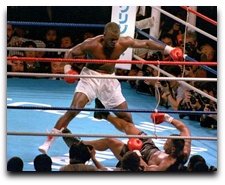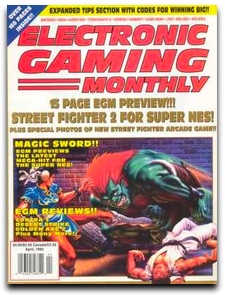David Reeves, Sony Europe’s President said, “we simply have to suffer a little” when talking about the PS3, Europe and the competition. He was talking specifically about Sony’s loss of market share, mind-share and overall performance in the latest competitive console arena. While Sony’s president dismisses Nintendo as in a separate market, David Reeves said, “we’ve learned from Nintendo how to grow the market and move from hand-held device to device – they’ve done it brilliantly.”
 What Sony may be dealing with is the fact that they’re not top dog in the latest battle for consoles. Europe has taken to the PlayStation 3 better than the United States and they’ve got plenty of fans in the region. There has been a recent upside to it all, some light at the end of the tunnel:
What Sony may be dealing with is the fact that they’re not top dog in the latest battle for consoles. Europe has taken to the PlayStation 3 better than the United States and they’ve got plenty of fans in the region. There has been a recent upside to it all, some light at the end of the tunnel:
“PS3 games sales are up 53% and there’s a healthy 1.1m pre-order book for Killzone 2, the first of a new batch of IPs that Sony will be counting on.” (guardian.co.uk)
Although it’s reported the PSP says are down 15% and PS2 software sales are down 51%, at least the PlayStation 3 is filling in the gap for some of those losses. At some point you’d expect the PlayStation 2 to decline, gamers are probably migrating over to the new hardware.
They’ve got some things to be proud of:
- PlayStation Network increases revenues by 200% in 2008
- 55% of all PlayStation owners are on PSN
- 17.5 million PSN subscribers
- 53% rise in software sales on PS3
- Won HD format war
Unfortunately PS3 sales were down last quarter by about 9%, perhaps a response to the harsh economic times. And, of course, the fact that Sony’s VP’s are constantly defending their position in the market is a bit disconcerting. As David Reeves said:
“It’s like Ali v Foreman – go eight or nine rounds and let him punch himself out. We’re still standing, we’re still profitable and there’s a lot of fight in us. I don’t say we will land a knockout blow, but we’re there and we’re fighting.” (guardian.co.uk)
Sony is playing the defensive, guarding themselves against the punches of the competition. Nintendo making headlines for sales, Microsoft coming out of nowhere to try to build market share, while Sony holds out for the tenth round to win it in the end? We’re not yet sure if it’s Ali vs. Foreman or if Microsoft is the next Buster Douglas.
(Thanks, Guardian)

 Granted, there were other glossy magazines prized by young boys too, but we were old enough to purchase Electronic Gaming Monthly, now known as EGM by the hip and cool. Although EGM was founded in 1989, many adults between the age of 29 and 35 probably spent their youth flipping through the pages reading the reviews and editorials.
Granted, there were other glossy magazines prized by young boys too, but we were old enough to purchase Electronic Gaming Monthly, now known as EGM by the hip and cool. Although EGM was founded in 1989, many adults between the age of 29 and 35 probably spent their youth flipping through the pages reading the reviews and editorials.